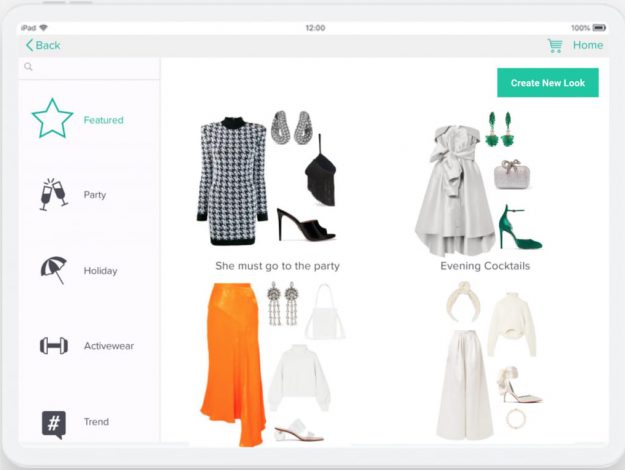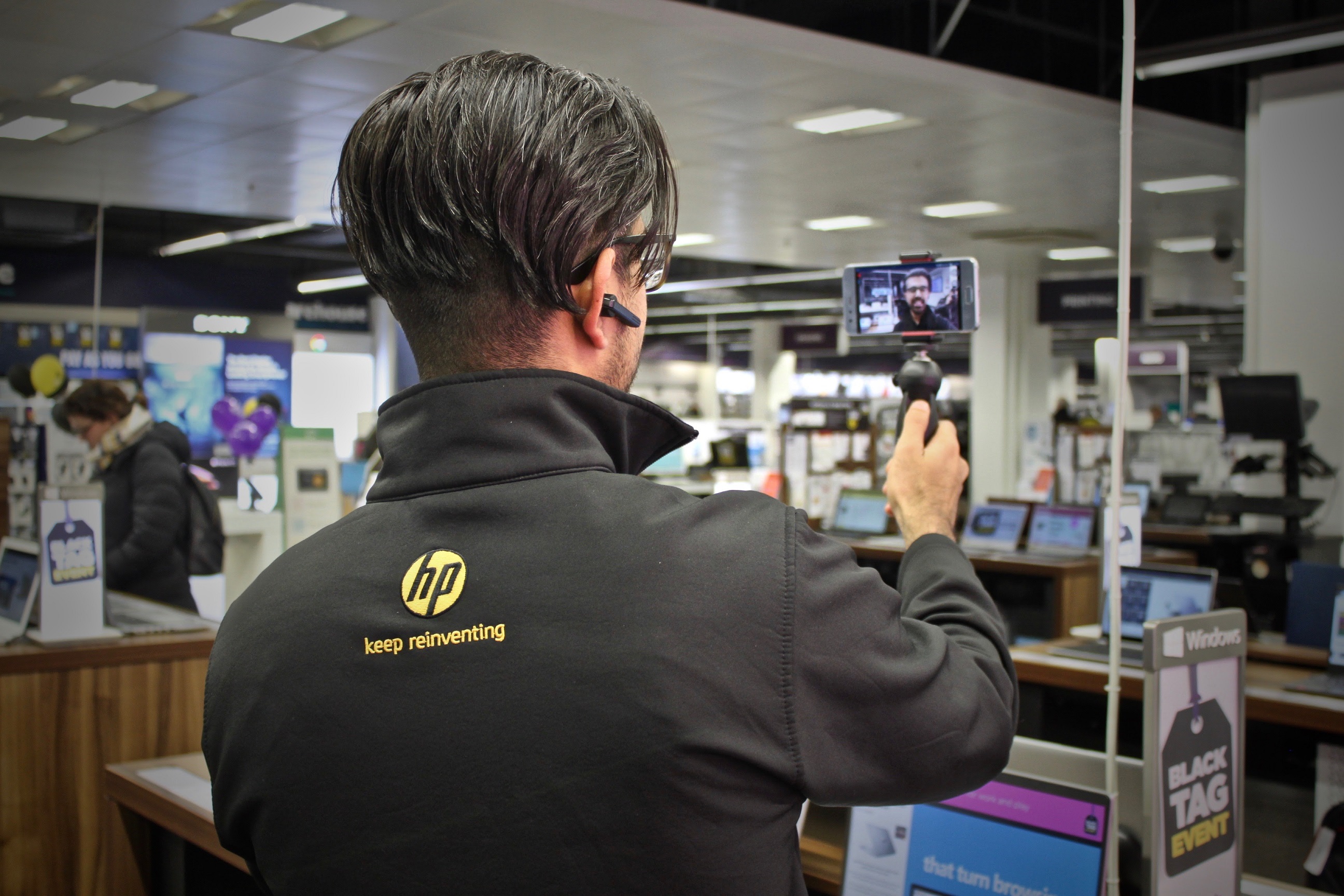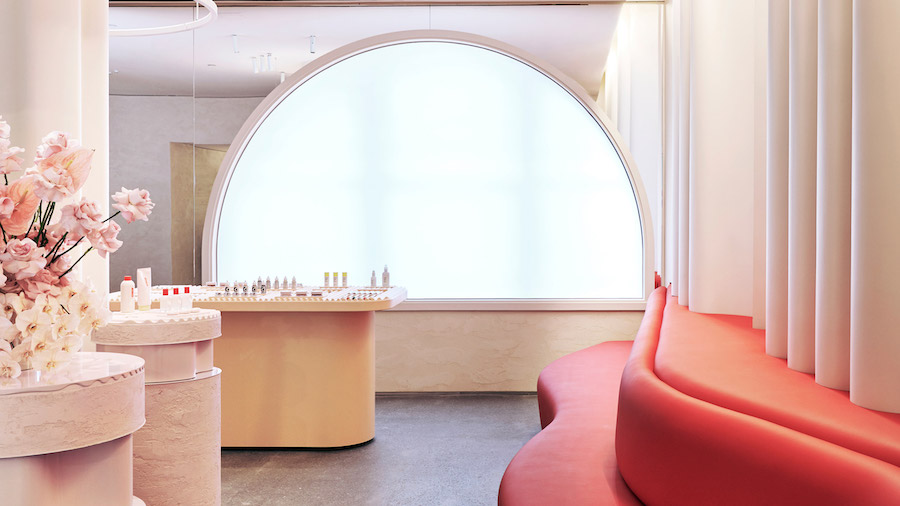The New Normal For Retail: What’s Next?
Throughout April and May 2020, Deltra Group launched our retail-centric digital roundtable event series with the formidable Bilyana Geogieva, a TEDx speaker and business transformation expert with valuable experience in the retail space.
Bilyana has worked with the likes of River Island, Philip Morris, Primark and GlaxoSmithKline leading transformation projects and pushing for innovation in the retail sector. We were delighted to welcome her on board to share her expertise and unique take on where retail is going and how to get there relatively unscathed.
The retail sector is without a doubt among the most hardest hit by the pandemic, with zero footfall to brick and mortar stores and skeleton staff in distribution hubs putting strain on online selling options. Many retail professionals are in crisis-mode and it’s easy to understand why.
In addition to human life, the coronavirus pandemic has claimed many a livelihood too with two-fifths of UK retailers closing their doors. Consumer spending had been on a downturn for some time before the pandemic hit and now that people are being actively discouraged to shop unless it’s for essentials, the retail sector certainly has its work cut out for it.
Non-essential shops are now in the process of reopening in June, and it begs the question of how profits will recover from the restrictions on the volume of shoppers allowed in stores let alone noticeable shifts in buying behaviours.
When it comes to business transformation the problem is then twofold. On the one hand, the sector needs you to keep going to help find a way through the crisis, on the other many organisations have put a blocker on budget requests for new projects or systems. It really is like being stuck between a rock and a hard place.

Bilyana outlined this perfectly in her first session titled ‘What The New Normal For Retail Looks Like When Business Is In Transformation Mode’. She said “Just two months ago retailers were making six figures per month in store, and then almost as much in online sales on top. As a result, they were happy to invest in business transformation, unfortunately, today we’re seeing many transformation teams dismissed.
As much as the retail industry is in survival mode, all the cash is going towards keeping operations afloat. This means that eventually, retailers will hit a stagnation peak where they won’t be able to change, grow or operate digitally in the future – something which will undoubtedly help them in a time of social distancing and essential shopping.”
Thankfully the sector has a long history of thinking on its feet, both managing to flex to consumer buying behaviours and influence them too. Based on Bilyana’s extensive knowledge and research, she elaborated on some of the avenues retailers may choose to take to see themselves thriving in their ‘new normal’.
Increased agility
We all know that being agile is a highly desirable trait to have in business, alas it’s something that historically tended to be left to startups and smaller organisations where it’s simply easier to be that flexible.
Retailers that have managed to get by during this period all share the common thread of being quite malleable to consumer needs. One attendee pointed out that a recipe box provider had very rapidly changed its range to be more frozen food-based to tie into consumer requirements for better forward planning - thanks to the panic buying phenomenon we saw early on during the pandemic.
We’ve also seen supermarkets like Lidl and Morrisons having a reactionary solution to panic buying by creating weekly grocery boxes filled with all the essentials. This was a great step in the right direction as they picked up on people’s fears around visiting the supermarket and browsing as they normally would. Being quick to adapt to these trends could be the “make or break” factor between some brands making it through this period or being left behind.
What’s more, during what Bilyana called a “quarantine on consumption” the average shopper is becoming more and more wary of non-essential purchases and in turn, becomes choosier about what they buy and where they buy it from. This brings issues like product sustainability and brand politics back to the forefront once more as decision-making factors.
Being agile with product ranges and, indeed, your brand means that you’re able to react quickly during a rapidly-changing situation where time is of the essence and buying behaviours are shakier than ever.
A greater reliance on digital
Those with online stores already set up have something of a safety net in all this, says Bilyana. However, she highlighted that simply having an online store may not be enough to deal with the volume of sales coming through the website as opposed to being split across in-store and online.
Many with online shopping and delivery capabilities were able to be quite quick in this transition to avoid a big lull in sales, however, this came at its own cost with customers unable to return items due to a lack of resource in their distribution hubs – meaning that the experience became more high-risk for the shopper. This in itself triggers a behavioural shift in target markets, lowering the probability of online sales since there are more barriers to purchasing than ever before.
High-risk shopping environments are at complete odds with how people purchase online in the coronavirus era. Bilyana references fashion retail and discusses the typical generations Y and Z’s trend of buying the same item in three consecutive sizes as they feel too anxious to use fitting rooms, followed by returning two sizes which don’t fit. This has been slowly on the rise for in-store and online shopping however the new rules for ‘no returns’ creates new behaviour to buy low price items only.

Bilyana then shared some cutting-edge retail technology which has opened up some options for many brands. Some fashion retailers have even opted to upgrade their “online fitting room” by adding their ranges to a clever system called Intelistyle.
This virtual fitting room allows the customer to input their measurements and preferences, it then gives the user a personalised selection of items from different brands. Technology like this works brilliantly for cross-selling and upselling and helps to give customers that personalised experience they may be lacking.
For those who relied heavily on their customer service, there are options out there that still hold on to the human element of shopping. Take Go Instore, for example, this supplier offers a video-based live shopping experience where a member of retail staff takes them through the store and allows them to browse with the employee and shop virtually in real-time.

During a period where the public is seeking out pleasurable experiences with brands wherever possible, they are also particularly attuned to sniffing out negative ones. In order to thrive once more after we settle into our ‘new normal’, the retail sector needs to smooth out any operational kinks before expecting sales to recover as they’re simply more pronounced now.
A new shopping experience
In addition to improving their online offering, many retailers will now have to treat their stores differently to allow for both social distancing and an enjoyable experience likely to result in a sale.
This can be seen in shopping hubs like Dubai and throughout Europe, where they have opted to reopen retail stores. Retailers are having to accept less footfall as a result of social distancing and will need to make changes to the in-store shopping journey.
On the other hand: Bilyana highlights that experiential showrooms were on the rise prior to the coronavirus outbreak. This saw many fashion brands transforming flagship stores into elaborate sensory experiences that weren’t necessarily geared towards buying.
You only need to look at sports clothing brand Puma who created their very own virtual soccer simulator to allow customers to be trained by famous athletes while donning the brand. Not only that, but their virtual iMirrors gave customers the option to ‘wear’ different product styles and colours and paired them with other items in the range, not to mention the store’s customisation station where shoppers could create their own personalised garments.

While this all sounds like an above and beyond the solution that would be unattainable for smaller brands outside of fashion, Bilyana sees experiential showrooms becoming just that – brand-strengthening experiences. Where online stores will become the primary buying channel, both will work in tandem to give us a better and more streamlined experience than before.
The running theme throughout all of our ‘The New Normal For Retail’ sessions was that, although times are undoubtedly tough, there has never been a more crucial time to lean on your retail transformation expertise to propel the sector forwards.
As one attendee put it “You can’t draw from history, what has worked in the past is going to be virtually irrelevant now so we need to find somewhere else to get our learnings from. This is the perfect opportunity to recognise collaboration tools that can help bring us together.”
Bilyana ended each of her 4 digital roundtables with an empowering message: “You are the experts and people value your opinion, listen to your ideas and in turn, share them with their networks too – that’s how change takes hold.
So please use your voice to shape and share our ‘new normal’. If we don’t transform retail now we may see a catastrophic downturn in the event on a second, more strict lockdown.”
From new technology to more theatrical in-store experiences and a much more agile way of working, the sector has a lot of work to do to recover from this. With transformation professionals like Bilyana and everyone who joined the call, retail could end up even better than before. With stores gearing up to open in the next few weeks, we’re all eager to see how the market approaches its climb back up to the top.
If you’d like to be a part of our next webinar session, fill out the form on our networking events page and one of the team will get back to you.
18th June
Events
Related insight
Related News
Looking to
transform?
Quicklinks

Address
Deltra Group
52-54 Gracechurch St
London
EC3V 0EH
Contact
+44 (0)207 375 9500
info@deltragroup.com



